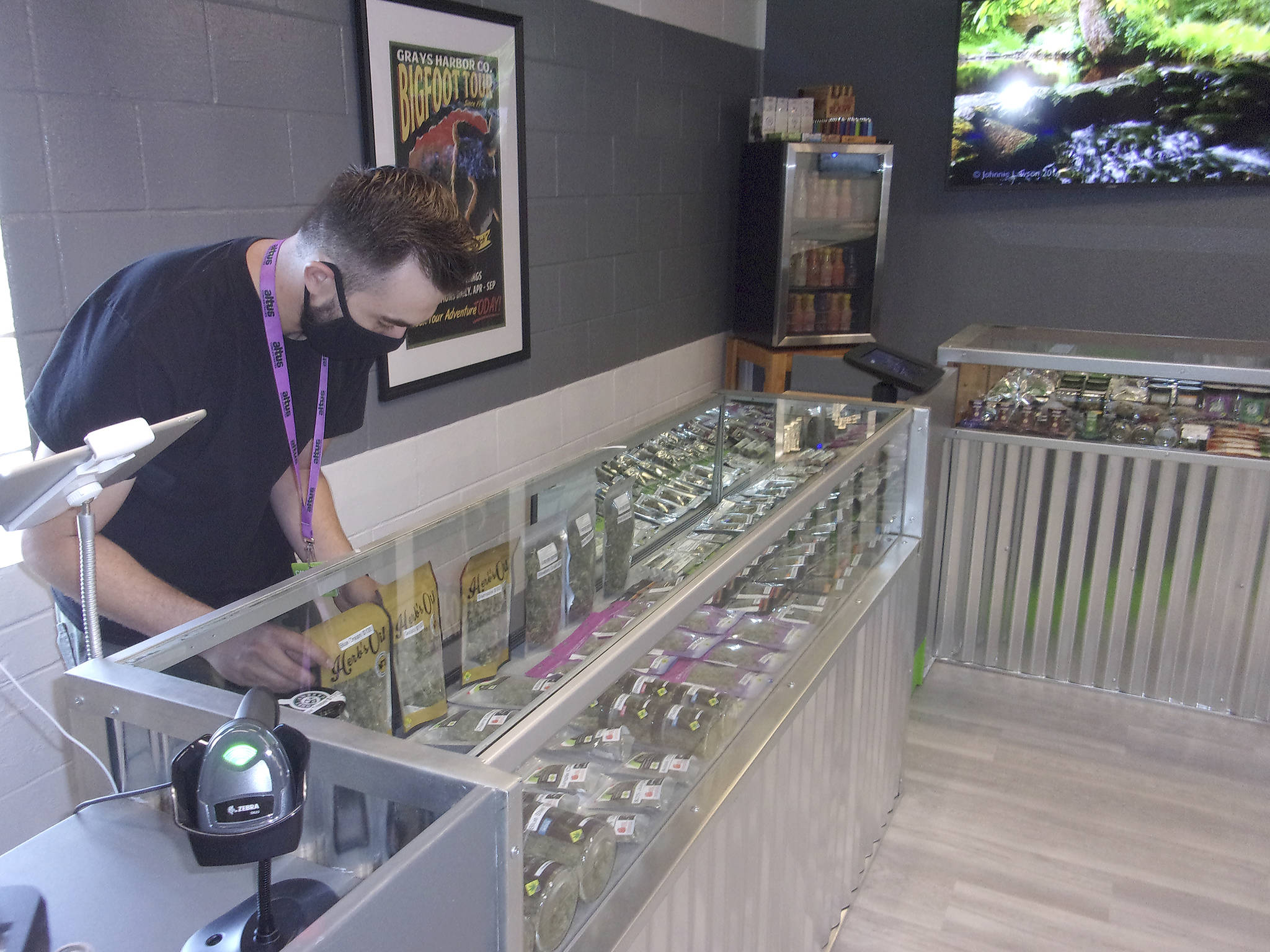By David Haerle
The Daily World
Like those around the state, Twin Harbors recreational marijuana stores have seen a significant uptick in sales during the coronavirus pandemic. While sales peaked in the spring and summer — when many people were still receiving extra unemployment benefits and stimulus checks — sales in recent months are still well above last year’s pace.
In Grays Harbor County alone, revenue from retail pot sales soared from March through the summer and the pace has shown little signs of slowing significantly.
From July 1, 2018, to June 30, 2019, Pot sales revenue in the county totaled just under $13.4 million. For that same one-year period ending June 30, 2020, that revenue reached more than $16.64 million — an increase of more than 24 percent, and only three months of that was affected by the pandemic.
In Pacific County, revenue increased from $3,433,076 for the fiscal year that ended in 2019 to $3,945,568 for the year ending June 30, 2020. That’s a 15% jump from year to year.
But the numbers around the Harbor are even more impressive from later this past summer, when consumers were still flush with stimulus money and extra unemployment benefits prompted by the ongoing pandemic.
In July and August of 2019, the Cannabis 21 store in Aberdeen had total revenue of $594,566. For that same two-month period this year — the latest months for which data is available — the store’s revenue reached $866,967 for a whopping increase of almost 46 percent.
The contrast wasn’t quite as significant at Zia Recreational in Hoquiam, but still substantial.
In July and August of 2019 that store had total revenue of $357, 390. The number for that same period that ended this past June 30 was $453,841 — an increase of 27 percent.
“It’s dramatically helped our business,” said Adam Bakotich, who owns and operates the Cannabis 21 stores in Aberdeen and Hoquiam, “People are cooped up; they had stimulus money and unemployment benefits, and you had to pass by the Aberdeen store to get to the beach.”
Bakotich made that comment back in August, but he hasn’t seen the trend slowing much and expects it to continue, though not at the levels as seen during the summer months.
”It’s definitely still strong,” he said of consumer demand. “About 25 to 30 percent higher than this time last year. The reason it was so high during summer is people still had stimulus money and extra unemployment benefits to spend.”
Bakotich theorized that new customers, people discovering new products such as edibles and CBD products — and the lack of other recreational activities to spend money on — will keep revenues higher than before.
“We’ve seen a ton of newer customers,” he said, noting that he expected those new customers to the recreational industry to boost sales statewide “eight to 10 percent” even post-pandemic.
“There’s not a lot of other things to spend money on right now,” he said. “You can’t go to bars or the movie theater. There’s just not a whole lot to do … and it seems understandable that people want to find a way to escape from all this. It’s just the perfect storm for us,”



